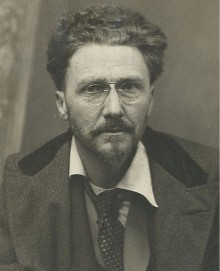Life at the Lake
a diary of living at a small lowland lakeWHAT IT'S LIKE

Early moonrise over Lake Ketchum
|
Archive Search |
| Links |
|
and s-integrator |

Just a smile, nothing more?
218
In a perfect society, everyone would have a blog, and all blogs would be interesting. All of us would read and write blogs.
And all young women (and men?) would have Webcams atop their computers, and slit-eyed boy friends would be daily directing them through the slow stages of undress. And all of the women would be . . . beautiful.
And they would all look different from one another.
- - Comments ()
...

217
There is a lot of nonsense, a lot of drivel, in The Cantos, but there is much great poetry buried there, a delight to come upon and often a lyrical surprise.
And there are word plays, too. Some are subtle and take much reflection (at least from me) to puzzle out, and the classic moment of enlightenment comes much later, when I've gone on to something else.
Viz. the word, "Portugoose." Now there are many nationalities and ethnic slurs in Pound, and to today's politically- correct-thinking sensibilities they come as a shock. One tends to skip over them with a somewhat disgusted tolerance. And so I first took the phonetic pun above. But it stuck with me. And finally it . . . dawned.
"Portuguese," when spoken, sounds much like the plural of the common English word, "goose." But only if you sound words as you read. (Poets do this, and so do other foolish people.) So if we are speaking in the singular, as we most often are, the adjective for the foreign nation singular sounds like a common barnyard plural. And thus the pun, for whatever it is worth.
And, now that I've got it, I might add to it. The 'Portu-" first half of the word sounds amazingly like our contemporary prefix that indicates portability. So there we have a goose (singular) that can be carried around, say, out of the front yard, where it has been terrifying strangers and we've had no mail delivery for a week.
My goose will have a handle attached (humanely, of course) to its back, by which it can be grasped and transported safely out of other people's harm's way.
Thanks, Ole Ez. Your work lives on, at least with a few of us.
Incidentally, this blog entry is for Verna.
- - Comments ()
...

216
Ez writes, in Canto CXII:
No dog, no horse, and no goat,
The long flank, the firm breast
and to know beauty and death and despair
and to think that what has been shall be,
flowing, ever unstill.
Then a partridge-shaped cloud over dust storm,
The hells move in cycles,
No man can see his own end.
The gods have not returned. "They have never left us."
I don't know about you, but I consider this pretty fine stuff.
You'll find more of it in his early work, though, before he started the long, consuming (and often tedious) Cantos.
- - Comments ()
...

215
Ole Ez writes: "Unscrew the inscrutable."
Good idea. What kind of tool do you use? An unscrew driver?
Seriously, though, The Cantos is a seminal document and has been described as notes toward the making of an epic poem. Not the poem itself, mind you, l but the notes. And of course the notes are the poem, or as close as we are going to get to it.
I've just finished reading the 824 pages, and 100 cantos. A lot of it has been tough going. You have to get used to the idea that much of it you won't understand, not unless you are going to stop (for years) and learn Greek, Italian, French, Chinese, and maybe a few I didn't recognize.
Is it worth the effort? Try it and see. Here and there there is wonderful lyrical poetry . . . in English. In the future I may lay a little of this on you, my readers.
- - Comments ()
...